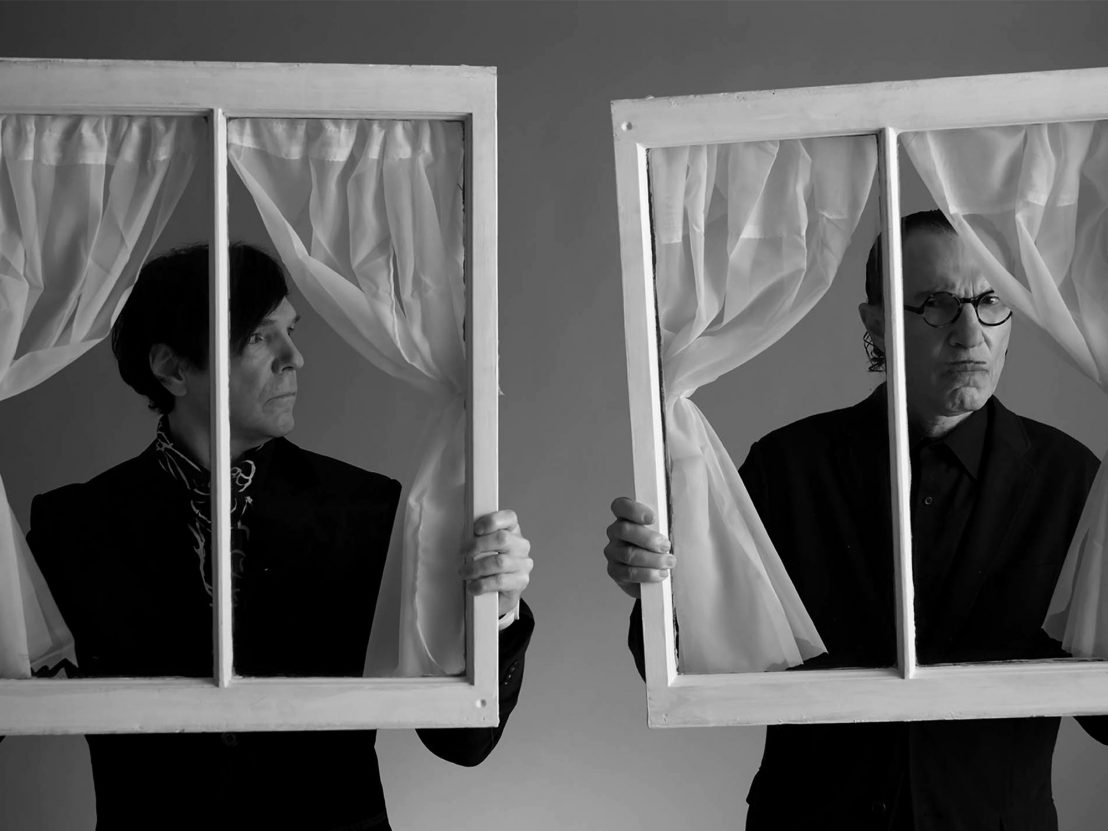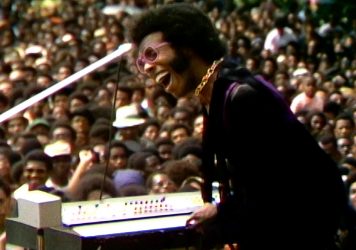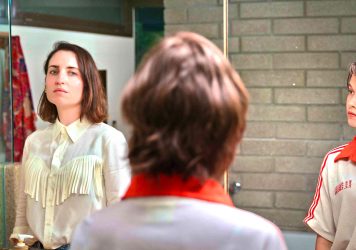
Edgar Wright delivers a deliciously infectious, suitably absurdist ode to his unsung musical heroes.
“The best British group to come out of America!” quips one of the many believers and collaborators peppered throughout this affectionate documentary, about a pair of musical misfits that never quite made the big time. If their influence was in any doubt, Edgar Wright has assembled dozens of celebrity talking heads, ranging from New Order and Duran Duran to Jason Schwartzman and, erm, Jonathan Ross, to quantify the point.
Ron and Russ Mael, we quickly learn, are one of the most influential sibling duos in musical history, with a legacy that’s remained largely buried for more than half a century. Their exact identity, even, remains something of a mystery, even after this spirited, exhaustive look through their giddy and tumultuous back pages.
Raised in surfside LA on a diet of John Ford westerns and music from the so-called British Invasion, the brothers added a growing obsession with the French New Wave to feed into hilarious early stabs at songcraft. ‘Windmill’ and ‘Computer Girl’ were among the first (Ron, ‘the quiet one’, replete with a deadpan Hitler moustache, wrote; Russ, the pretty boy – once a promising American football player – sang).
With their band Half Nelson, they attracted producer Todd Rundgren. But their debut bombed. A refresh – as Sparks – saw them fly to Britain, with a new line-up, chaotic shows, notable TV appearances (Top of the Pops and Old Grey Whistle Test in the UK; American Bandstand in the US) and an on-again, off-again relationship with their label. Rarely, if ever, has a band been dealt such a crazily grim set of cards, crashing and burning over and over again, only to rise up to try it all out one more time.
Wright covers in intricate, chronological detail their 25 albums (which run the gauntlet from glam and prog rock to disco and techno) and their near-misses with cinema (notably, with Jacques Tati and Tim Burton), which explains why this enjoyable film runs at nearly two-and-a-half hours. We even get to learn how the pair, now in their seventies, stay in shape.
It’s all told via a lively scrap-book aesthetic of cut-out graphics, animation, home movies and those to-camera interviews, all shot in black-and-white (perhaps as an homage to their first love of European cinema). There’s very little not to love. All that’s missing is, perhaps, the elephant in the room, hinted at only in passing: their private lives. With music and performance as joyously camp as this, an additional layer begs to be included.
Still, with their mystique defiantly intact, the Mael brothers have at last the legacy piece they clearly so richly deserve. Blind to commercial ambition, with an unwavering sense of purpose, a sweet coda about their upcoming collaboration with French maverick Leos Carax provides a sweet finale to their delightfully off-the-wall journey. A story as rich as this should inspire every oddball out there to go forth and cultivate. The world needs artists like these more than ever.
Published 31 Jan 2021

A film censor becomes obsessed with unlocking the secrets of her sister’s disappearance in this stylish horror throwback.

By Leila Latif
Questlove’s triumphant directorial debut charts the cultural impact and legacy of the 1969 Harlem Cultural Festival.

There’s shades of Miranda July in Zoe Lister-Jones and Daryl Wein’s deadpan end-of-the-world comedy.